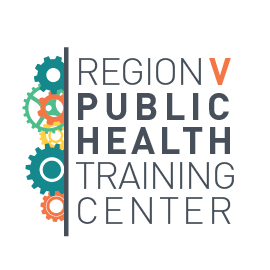By Janine O’Donnell, MPH, Kent County Health Department
The field of public health has been chronically underfunded for decades. A persistent lack of resources hampers efforts to promote health equity, address the growing burden of chronic disease, effectively combat behavioral and mental health concerns, and proactively respond to emerging issues (Trust for America’s Health [TFAH], 2023). It’s no wonder state and local health departments rely heavily on creative, cost-saving strategies to develop and deliver public health programming to the communities they serve.
One such established strategy has been to accept in-kind contributions of staff time from community-based organizations (CBOs) or volunteer time from residents to aid in the development and implementation of programs and services. Though these types of unpaid partnerships are long-standing traditions in many places, they fail to recognize that providing expertise and “community voice” in a meaningful way and on an ongoing basis is a large commitment of time and energy from community partners (Hutson 2021). Community participation has been shown to positively impact programming because it provides highly tailored feedback that is more likely to be trusted and acted upon by the community (Haldane et al. 2019, Black et al. 2013).
Public health departments should — whenever feasible — prioritize paying community partners for their technical assistance and expertise to both improve the quality of programming and to alleviate undue burdens placed on partners. With careful planning, this can be done even within the financial confines of an underfunded public health system.
In 2022, the Kent County Health Department (KCHD) began piloting an approach for the sustained compensation of CBO representatives and residents for their involvement in the Kent County Health Equity Council (HEC). The purpose of the HEC is to listen well to communities facing the greatest health inequities and to understand their priorities and proposed solutions. To achieve this goal, sustained and meaningful community engagement is required. The compensation approach used by KCHD is modeled after KConnect’s Community Engagement Compensation Structure (KConnect 2020). Below is a brief summary of KCHD’s approach to compensating community:
- Health Equity Council members are compensated an hourly rate for meeting preparation and meeting attendance. Community Voice meetings are held one to two times per month.
- A small number of partners who are eligible for compensation opt-out. This is often due to the work aligning well with their institutional priorities.
- Related initiatives are braided together under the HEC umbrella to expand funding opportunities for partners. For example, past cycles of the Community Health Needs Assessment (CHNA) identified specific populations that were not well represented in local data. Numerous conversations were had with the HEC on this topic and recently CHNA funding was made available to compensate eight HEC partners to help distribute the community survey in un- or underrepresented populations.
- In early 2023, a foundation approached the HEC team with a grant opportunity. Although KCHD was the main fiduciary for the HEC work, it was decided that funding should be directed to a CBO with a critical leadership role in the HEC. This was in keeping with the HEC’s mission of sustainability and community capacity building.
Many people are familiar with the old adage, “If it ain’t broke, don’t fix it.” Some would point to enduring relationships in which community partners volunteer their time as proof that the current paradigm in public health is working well.
However, we must ask ourselves: Who does the current system benefit most? Is it possible the system is broken, just not for those most often making the decisions?
Although compensating community partners is not always straightforward work, public health practitioners owe it to the health of future community partnerships to explore ways to pay partners for their expertise.
To learn more, check out these resources:
- Black Z., Hardy C., De Marco M., Ammerman A., Corbie-Smith G., Council B., Ellis D., Eng E., Harris B., Jackson M., Jean-Baptiste J., Kearney W., Legerton M., Parker D., Wynn M., Lightfoot A (2013). Beyond incentives for involvement to compensation for consultants. Progress in Community Health Partnerships; 7(3): 263-270. https://www.ncbi.nlm.nih.gov/pmc/articles/PMC4783164/
- Haldane V., Chuah F., Singh S., Koh G., Seng C., Legido-Quigley H. (2019). Community participation in health services development, implementation, and evaluation: A systematic review of empowerment, health, community, and process outcomes. PloS One; 14(5): e0216112. https://www.ncbi.nlm.nih.gov/pmc/articles/PMC6510456/
- Hutson B. (2021). Paying community members for their time. https://shelterforce.org/2021/02/26/paying-community-members-for-their-time/
- KConnect (2020). Community engagement compensation structure. https://www.k-connect.org/wp-content/uploads/2020/08/Community-Engagement-Framework-and-Compensation-Structure.pdf
- Trust for America’s Health (2023). The impact of chronic underfunding in America’s public health system: Trends, risks, and recommendations. TFAH-2023-PublicHealthFundingFINALc.pdf

